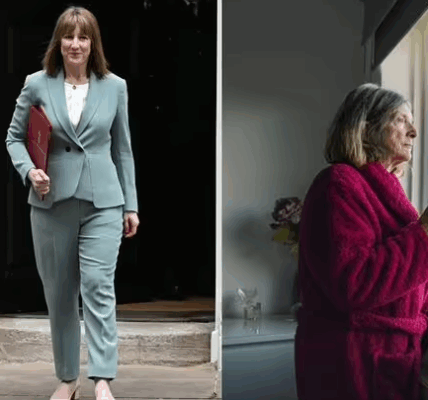The Department for Work and Pensions has updated its guidance since the announcement to confirm who will be eligible for the payment this year

Chancellor Rachel Reeves has confirmed the winter fuel payment will be reinstated for millions this winter (Image: Pool, Getty Images)
Anyone wanting to claim the Winter Fuel Payment this year has had the key date of birth confirmed by the Department for Work and Pensions (DWP).
Following Chancellor Rachel Reeves‘ recent declaration, the Gov.uk website was updated with initial details, revealing that nine million people who missed out on the £200-300 benefit last winter are set to receive it this time around.
Even those with incomes exceeding £35,000 will be eligible for the payment, which will later be recouped via the tax system.
Labour leader Sir Keir Starmer has insisted that the decision to reinstate most of the winter fuel payments was not influenced by political backlash against the policy.
In light of the announcement, the DWP has refreshed its guidelines and for the first time detailed the eligibility criteria for the payment – and the exact date – 22 September 1959 people need to be born by.
The DWP has clarified that only those born on or before a specific date will be entitled to the benefit.
Officials said “The Winter Fuel Payment for 2025 to 2026 will be made to everyone in England and Wales born before 22 September 1959, unless you choose not to get it. You could get either £200 or £300 to help you pay your heating bills for winter.”
They added: “You do not need to do anything – payments will be made automatically.”
Officials have confirmed that everyone will receive the payment but warned that those earning above a certain threshold would see it recovered through HMRC, though they offered no details on how this mechanism would function.
The statement read: ” If your income is over £35,000, your Winter Fuel Payment will be recovered later through HMRC. Details of the 2025 to 2026 payment will be available by the end of June 2025.”
BBC Moneybox expert Paul Lewis has previously stated: “The £35,000 income limit for keeping the winter fuel payment will be frozen Ministers confirm, leading to more pensioners repaying the money year by year it will join frozen bereavement payments, capital limits, child benefit limits, and tax thresholds.”
Meanwhile, recent data reveals that consumer confidence in Britain’s economic future has nosedived over the past year.
Confidence has crashed by 31 points during the last 12 months, dropping from an average of minus nine between May and July 2024 to an average of minus 40 between May and July this year, according to Which?’s Consumer Insight Tracker.
On average between this May and July, 56% of people believed the economy would deteriorate whilst just 16% expected improvement.
Which? described the figures as showing a “significant fall” to some of the lowest levels witnessed since early 2023, when the cost-of-living crisis dominated headlines and inflation reached double digits. Pensioners have become the most downbeat demographic, with their outlook on the future UK economy plummeting from an average of minus five between May and July last year to a stark average of minus 63 currently.
Their confidence took a nosedive in autumn last year – just after the Government’s initial decision to axe the winter fuel allowance for the majority of pensioners – and has stayed depressed ever since, despite the Government’s reversal on fuel payments.
Which?’s data indicates that the financial strains from the peak of the cost-of-living crisis haven’t eased back to pre-crisis levels.
As of July 18, around 2.1 million households failed to make at least one vital payment, be it rent or mortgage, utility bills, or credit card or loan repayments.
Furthermore, an estimated 13.9 million households (49%) have had to make adjustments to afford essential outgoings like utility bills, housing costs, groceries, school supplies, and medicines over the past month – measures include cutting back on necessities, tapping into savings, selling items, or taking on debt.
Rocio Concha, Which? director of policy and advocacy, commented: “Our research shows consumer confidence in the future of the UK economy has dropped alarmingly over the last year.”
She added: “The Government has rightly focused on growing the economy and raising living standards but in doing so, it must not overlook the importance of consumer protections in restoring confidence.
“People are sick to the teeth of having to dodge fraudsters when shopping online, watching out for rogue traders when making home improvements and needing to keep an eye out for dodgy pricing practices which mean that offers aren’t as good as they first appear.
“The right consumer protections give people the confidence to spend and the Government must place these protections at the heart of its plans to grow the economy.”
